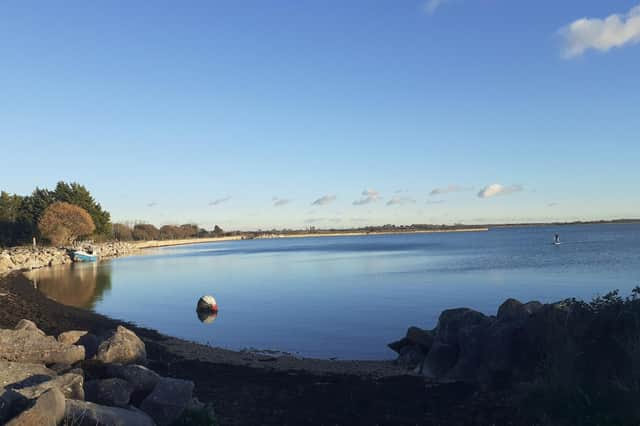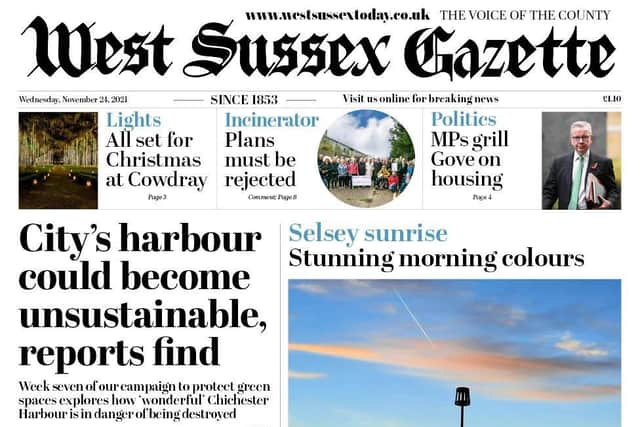Chichester Harbour ‘in danger of being destroyed’ if we do not act


The West Sussex Gazette is campaigning to protect our county’s green fields from housing developments.
We launched it on the back of Prime Minister Boris Johnson’s Tory Party Conference speech, in which he signalled a shift away from ‘jamming’ the South East with homes.
Advertisement
Hide AdAdvertisement
Hide AdPrioritising building on brownfield land was also mentioned – something we heartily welcomed, given the swathes of countryside currently under threat.


Each week, we have been giving West Sussex groups the chance to explain why development would be bad for their treasured greenfield sites – but this week we focus on a slightly different landscape; Chichester Harbour.
The guest comment below is by John Nelson, of Chichester Harbour Trust. For all our other campaign comment pieces, click here.
***
‘Our beautiful harbour is in danger of being destroyed’ - by John Nelson, chairman, Chichester Harbour Trust
Advertisement
Hide AdAdvertisement
Hide AdThe Chichester Harbour Area of Outstanding Natural Beauty is one of the most beautiful and largest natural harbours in the UK.
It is sited just to the south of the beautiful South Downs National Park, creating one of the most wonderful landscapes in England.
It is also one of the most important biodiversity sites in southern England, being home to an extraordinary breadth of botany and winter migrating birds, particularly at this time of year.
It is a centre for recreation both on and off water.
It is one of the leading sailing centres in the world and is a hub for walking, bird watching and wild water swimming.
Advertisement
Hide AdAdvertisement
Hide AdIt plays a fundamental role in the strength of the local economy.
Our beautiful harbour is in danger of being destroyed, in terms of landscape, biodiversity and water quality.
Reports from national agencies, most recently Natural England, are issuing severe warnings.
Apart from the well-publicised issues with water treatment capacity, the massive current planned over-development of the area (involving the building of some 12,000 dwellings, increasing the population by the equivalent of the population of Chichester City), particularly in the corridor between the harbour and the South Downs and on the Manhood Peninsular, will wreak further havoc with the harbour.
Advertisement
Hide AdAdvertisement
Hide AdIt will destroy the landscape, the connection of the Downs with the harbour – vital for the all forms of wildlife and plant life – and will turn Chichester Harbour toxic in terms of water quality.
In short, the harbour would become unsustainable for nature, recreation and health.
COP26 had a number of messages. One of the most important is the fact that biodiversity is fundamental for the survival of the human race.
The solution is not to ban all development. We need more housing – but 12,000 is wholly unrealistic, and manifestly lacks common sense for this area.
Advertisement
Hide AdAdvertisement
Hide AdIt must be planned intelligently, on suitable sites – brownfield, on recycled sites where the new economy is rendering much commercial building redundant, and minimising greenfield development.
It needs to be built in a way that ensures there is adequate infrastructure, mainly road and water treatment – and that will take 20 or so years to put in.
There must therefore be a pause on new planning applications until plans for new infrastructure are in place.
The housing needs to be fit for purpose, environmentally up to date, diverse of type to cater for the local demographics and affordable for the local population. Looking at recent local housing developments, none of them fulfil these criteria.
Let us hope and pray that our political leaders, both national and local, eventually see sense and save our wonderful Chichester Harbour.